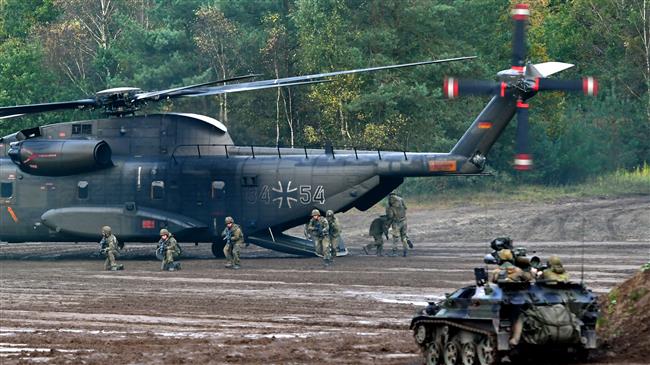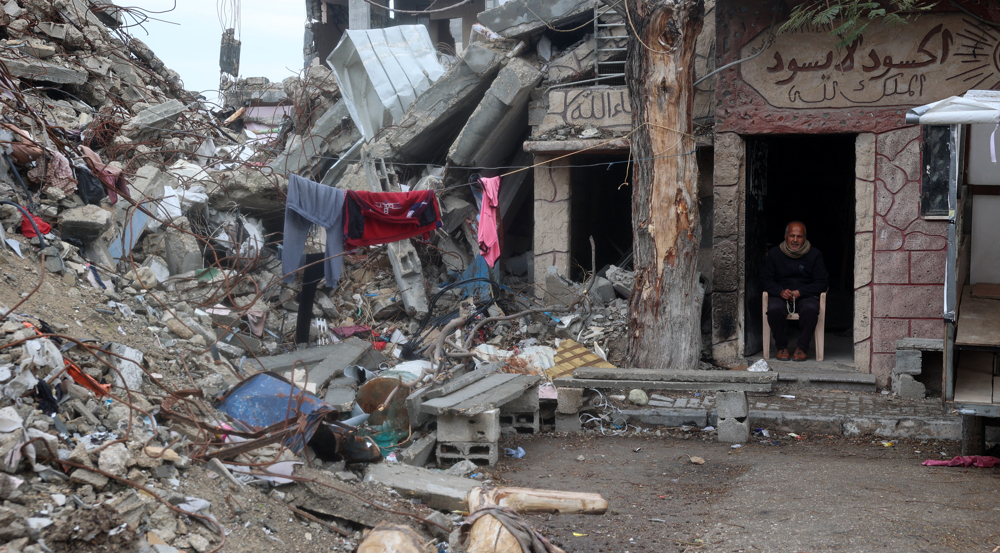German army facing problems amid intl. commitments
Germany's armed forces are being pushed beyond their limits as Berlin makes greater international commitments while failing to invest in and reform the military, according to a report published Tuesday.
"The army's readiness to deploy has not improved in recent years, but instead has got even worse," parliamentary armed forces commissioner Hans-Peter Bartels said as he presented his annual findings at a press conference, pointing to "big gaps" in personnel and equipment.
By the end of 2017, all Germany's submarines were in dry-dock for repairs, while in recent months there have been periods where none of the air force's 14 A400M transport planes are airworthy.
The litany of disrepair continues through fighter planes, tanks, helicopters and ships lamed by bad planning and a lack of spare parts.
Air force pilots are unable to train as their aircraft are grounded for maintenance for much of the year, the report notes.

Spending on defense has been cut repeatedly since 1990 and the end of the Cold War, leaving the army with often outdated equipment and the defense industry unable to suddenly increase production to fill the gaps.
Despite government promises to find more cash, "tasks for which there are supposed to be additional people and equipment in future are already upon us", Bartels said.
"Soldiers already have to accomplish them today as best they can, using whatever is to hand."
The grave state of the Bundeswehr (German army) has persisted even as leaders in Berlin commit troops to increasing numbers of foreign deployments -- ranging from their traditional role deterring Russian forces in Europe alongside NATO partners to interventions in conflict zones like Mali or Iraq.
Germany presently spends just 1.2 percent of GDP on its military.
This week alone, German media reported that as well as tanks, Germany's troops supposed to join a NATO "rapid reaction force" lacked protective vests, winter clothing and tents.
"We will make the best possible equipment, training and support available to our soldiers," Chancellor Angela Merkel's conservative CDU said in a coalition agreement sealed with the Social Democratic Party that is still to be approved by SPD members.
But even if a prospective new Merkel government loosens the purse strings, "we wouldn't be in a position to spend more money with our present procurement structures," Bartels said.
(Source: AFP)
Beijing tripartite meeting 'clear path' to counter US unilateralism: Iran envoy
Russia says all ‘nuclear-related’ anti-Iran sanctions ‘illegal’, urges diplomacy
US, Israel eye Africa for displacing Palestinians from Gaza: Report
Families of Iranian victims of terror condemn Italy's support for MKO
Security Council agrees to condemn massacre of Alawites in Syria
Greenland PM summons party leaders after Trump's annexation comments
China, Russia urge end to ‘unlawful sanctions’ on Iran
Columbia University expels, suspends pro-Palestine students











 This makes it easy to access the Press TV website
This makes it easy to access the Press TV website